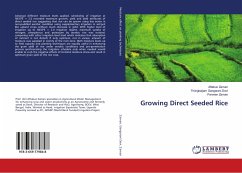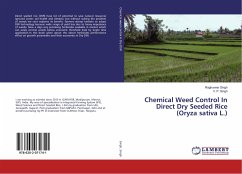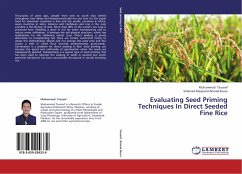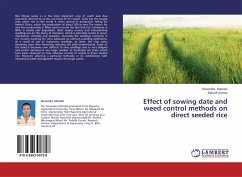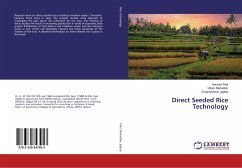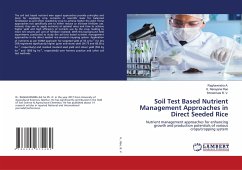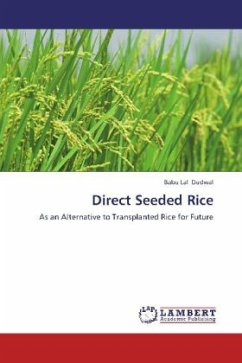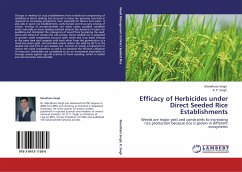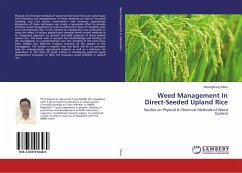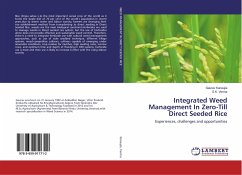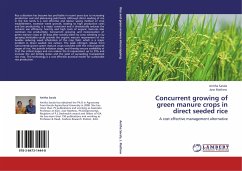
Concurrent growing of green manure crops in direct seeded rice
A cost effective management alternative
Versandkostenfrei!
Versandfertig in 6-10 Tagen
52,99 €
inkl. MwSt.

PAYBACK Punkte
26 °P sammeln!
Rice cultivation has become less profitable in recent years due to increasing production cost and plateauing yield levels. Although direct seeding of rice in the low lands is a cost effective and labour saving method of crop establishment, excessive weed growth, leading to high production costs and low productivity, is a major constraint and it dramatically reduces the nutrient use efficiency. Scarcity and high costs of organic manures also constrain rice productivity. Concurrent growing and incorporation of green manure crops at 30 days after sowing either by cono weeding or by spraying herbi...
Rice cultivation has become less profitable in recent years due to increasing production cost and plateauing yield levels. Although direct seeding of rice in the low lands is a cost effective and labour saving method of crop establishment, excessive weed growth, leading to high production costs and low productivity, is a major constraint and it dramatically reduces the nutrient use efficiency. Scarcity and high costs of organic manures also constrain rice productivity. Concurrent growing and incorporation of green manure crops at 30 days after sowing either by cono weeding or by spraying herbicides could provide the organic manure requirement of rice besides reducing weed infestation of the crop field, which is a major problem in direct seeded rice culture. The peak nitrogen release from concurrently grown green manure crops coincides with the critical growth stages of rice, the panicle initiation stage, and thereby ensure availability of N at the critical stages and can reduce the N requirement up to 25% and increase the soil fertility status and the yield of succeeding transplanted rice crop. This technology is a cost effective practical model for sustainable rice production.



